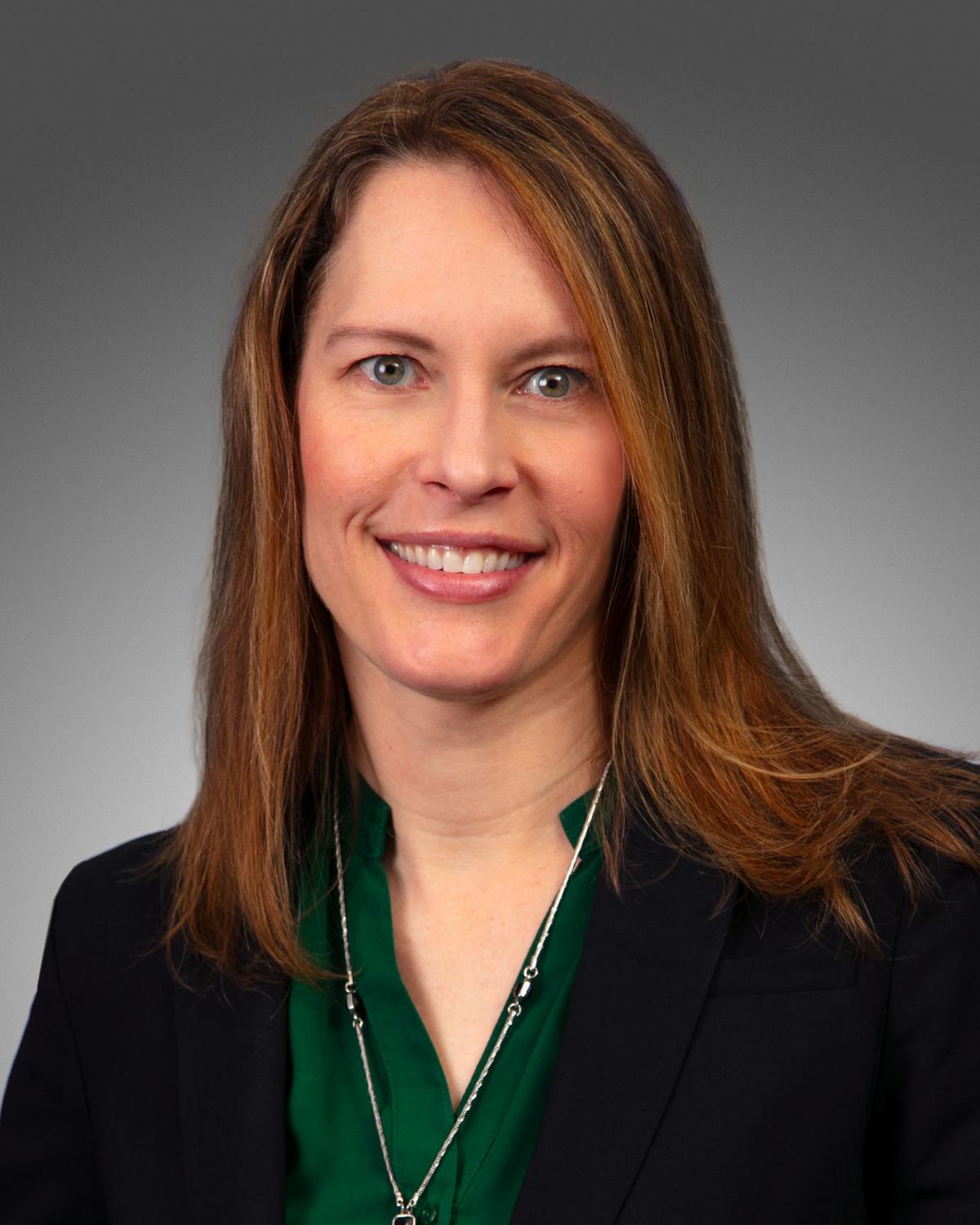Wyoming School of Energy Resources Welcomes New Director

By Camille Erickson
March 29, 2020 - The Wyoming School of Energy Resources welcomed its new executive director, Holly Krutka, earlier this month. A PhD chemical engineer by training with diverse industry experience, Krutka aims to leverage the talent and dedication of SER’s faculty and staff, as well as the world-class facilities, to drive innovation of energy technology and policy for the benefit of the state.

Holly Krutka
Star-Tribune energy reporter Camille Erickson caught up with Krutka after her first week on the job. The interview has been lightly edited for clarity.
Star-Tribune: What excites you most about your new role as the director of the UW School of Energy Resources?
Krutka: From many different perspectives, Wyoming has an outsized impact on the energy sector and the School of Energy Resources (SER) at the University of Wyoming is at the forefront of energy innovation in this important state. Thanks to the leadership of my predecessor, Mark Northam, and years of dedication by the faculty and staff, I believe SER is advancing several strong initiatives that will positively impact the state’s energy sector.
A few worth mentioning include the carbon engineering program, which is focused on finding new uses for Wyoming’s world-class coal resources. Diversifying Wyoming’s coal industry could help offset some reductions in the thermal coal market. Similarly, SER is collaborating with stakeholders at the state, national and international level to advance carbon capture, use and storage technologies and policies. This is an arena in which the state is becoming increasingly recognized as an international leader.
For example, SER faculty and staff have been conducting a flagship CO2 storage project under the Department of Energy’s CarbonSAFE program and have applied for Phase III funding that would bring tens of millions of dollars to the state to continue the advancement of the technology. Similarly, SER is also engaged in the assessment of rare earth elements in Wyoming – an opportunity for the state to produce materials used in numerous critical fields, including clean energy, and create a new revenue stream for the state.
I also look forward to supporting the work being led by Dr. Piri at the Center of Innovation for Flow through Porous Media. I was fortunate to visit Dr. Piri early in my career and shortly after he had moved to the University of Wyoming. Seeing all that has been accomplished by Dr. Piri and his team to become a world-class research program since that time is incredibly inspiring and sets the bar high for all of us.
Being a part of these and other initiatives is incredibly exciting.
Star-Tribune: What past experiences, particularly from your tenure at Peabody Energy, do you hope to apply to your new position at SER?
Krutka: Throughout my career, I’ve learned that research often doesn’t yield the expected results, but sometimes the outcome can be even better; it is worth embracing this journey.
I’ve also learned the value of patience and calm when tensions are high. Too often stakeholders miss opportunities for engagement by speaking past each other. For example, when I presented about technologies that could reduce greenhouse gas emissions from coal at the White House-organized side event at the international climate negotiations in Bonn, Germany, a pre-planned protest halted the panel on which I was participating.
However, ultimately all the speakers were able to finish and many of the questions from the audience were thoughtful, genuine and aimed at finding common ground. I couldn’t have predicted that’s where the session would have ended when the angry voices ruled the room.
I very much enjoyed my time at Peabody. One principal reason was the people with whom I worked. I was able to fully understand the value of a team and how when you have a high-functioning group, the sum is far more than the parts. Similarly, I also spent a great deal of time in Wyoming while with Peabody and in my previous roles. I came to know many people in this state and have found the approach to energy challenges to be pragmatic. I share that pragmatism and aim to continue using that mindset at SER.
The executive director of SER is a unique position; I believe that having a diverse career path has helped me in many ways to prepare and these are just a few of the specific examples. I plan to use my past experiences and my new role to help support the faculty and staff of SER; they are already advancing many initiatives that will benefit the state of Wyoming, and I aim to ensure they have the resources and support they need.
Star-Tribune: What role do you see SER playing in the future of Wyoming’s energy industry?
Krutka: To understand the role SER is playing in the future of Wyoming’s energy industry, it’s important to understand what makes up SER and how it is unique from other departments across the University of Wyoming.
The mission of the school is to provide a mechanism to achieve excellence in energy research, academics and outreach. SER is unique because we have 11 faculty members, but they are placed in seven different departments across campus. Their offices are not in the SER building. This approach allows SER to have a multidisciplinary approach to everything it does with contributions from many departments: economics and finance, mathematics, chemical engineering, geology and geophysics, chemistry, petroleum engineering and law.
SER involvement in any initiative must be driven by the opportunity to advance development of the state’s energy resources. The first step is contributing to academic programs for students who can ultimately graduate from the University of Wyoming prepared to work in the state’s energy industry. SER’s outreach program includes engagement with stakeholders, including those from industry, which can help SER to understand what those employers need and continually evaluate how to best prepare today’s students and inform research.
Similarly, the research program at SER is focused on developing new ways to use Wyoming’s energy resources, both conventional and unconventional. While SER’s specific research programs and focus can and should evolve over time to best meet the state’s needs, the underlying driver of benefiting the state is unwavering.
Star-Tribune: Can you share one or two people who have inspired you throughout your career and why?
Krutka: I’ve been incredibly fortunate to have worked with many leaders and mentors throughout my career and it is impossible to choose only two who’ve inspired me. However, there are two traits that are particularly important to me: vision and perseverance. When you read about the early days of oil development, you get the sense that there was a craze, an underlying obsession to discover the next producing location.
The unexpected outcomes were part of those early days. Having seen an international oil price war occur during my first week at SER is a reminder that the energy sector remains turbulent and dynamic, but it has captured many of us.
We stand on the shoulders of giants and whether it is the crazed oilmen of the 1800s, countess educators, engineers and scientists, or the trailblazing women who followed their passion to be in this field long before it was socially acceptable, I am humbled to be a part of the energy industry in the impactful and beautiful state of Wyoming.

